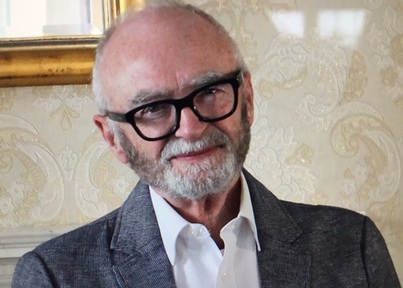Mandarin speaking children have 'head start' when learning maths, says bilingual nursery owner
Cennydd John set up Britain's first bilingual English-Mandarin nursery chain after his son was born, as he became "acutely aware of the importance that China would have on his life".
"I wanted him to benefit from a knowledge of the language without spending the amount of time that I did as an adult attempting to learn it," he said.
Now three years on, his nursery chain Hatching Dragons Ltd has three nurseries in the central London area, with more planned in the future.
![]() Cennydd John of Hatching Dragons
Cennydd John of Hatching Dragons
The Hatching Dragons staffing model is 50:50 Chinese-English, which means 50 per cent of their staff are Mandarin speakers. Both British and Chinese children attend the nursery, and each child has two key workers, British and Chinese.
Almost all the Chinese staff are graduates with skills in fine art, music, drama - skills which Mr John finds to be “immensely applicable to early years education”. British staff come from all walks of life - many with degrees.
Speaking to your children in your native tongue develops ‘emotional bonds’
Mr John can speak fluent Mandarin himself, but as he explains, he wanted his son to learn the language not necessarily from his father, but within a structured early years environment. He says: “I chose to not speak to my own son in Mandarin mainly because as a second language to me, it wouldn't provide me with a natural conduit for all of those more nuanced non-verbal ways of communicating that establish the emotional bonds between parent and child.
“I think you have to speak to your children in your native tongue to develop that. But if you speak English and want to invest in a future that allows them to engage, confidently, in other languages and develop the skills to pick up other languages - the meta-linguistic capabilities - then it is about consistency of exposure and consistency in commitment.”
“Consistency, consistency, consistency”
Although Mr John is a big believer in teaching young children in an early years setting, he is quick to point out that he prefers to teach Mandarin in a full daycare setting rather than just a nursery one. As a result, the education programme is extended to non-term time, with their popular Mandarin summer camps.
Mr John says he has never really understood why nursery school provision alone would work for most parents. He shrugs: “It's not like working couples can stop work at 2:30 in the afternoon to collect their children and then stop work entirely over an 8-week period in the summer, 3 at Easter and 3 at Xmas. The amount of money being spent on Nannies and childminders must be insane.”
The most important thing for bilingual education is “consistency, consistency, consistency”, according to Mr John, and the best way for young children to learn a new language is in a structured environment at an age when they are most receptive to developing language skills. This is the main reason why he prefers a more ‘immersive’ approach.

Maths is easier in Chinese as it is ‘more computational’
Mr John believes that those who can speak Mandarin have a head start when it comes to learning maths.
The language has a more binary structure than English and lends itself very well to computation, as he explains: “Chinese, and indeed other East Asian languages, have a much simpler mathematical structure in their language than we do. If you consider just the words we use to associate with numerals - you can learn one through ten relatively easily, but then you have to learn an entire new set for eleven through to twenty.”
The language is also very good for young children as they need to learn less words. Mr John says: “The only numbers you need to learn in oral Chinese are one through ten, one hundred, one thousand, ten thousand and then 100 million. Twenty is just two tens. eleven is just 10+1.
“There is no need to learn new words - the language is directly related to computation in simple digits. Which is part of the reason why Chinese and East Asian children out perform all western counterparts in computational ability, the other part being culture, appreciation of education, hard work and rigour!”
Mr John’s ethos of 'hard work and rigour' is clearly paying off as the nursery is raising funds to expand in Central London and there are also plans to launch a Venture Capital fundraise with the eventual aim of rolling out another 10 sites in London. They’ve also had interest from Chinese educational groups who want to acquire them to take the brand to China as a high-end provider.
daynurseries.co.uk lists a wide range of jobs in the early years sector. To look for jobs click here
click here for more details or to contact Hatching Dragons Ltd
Latest Features News
 31-Oct-19
Reward stickers at nursery accused of having a 'dark side'
31-Oct-19
Reward stickers at nursery accused of having a 'dark side'
 18-Sep-19
Neuroscientist tells nurseries to ditch stereotypes as they create gendered brains
18-Sep-19
Neuroscientist tells nurseries to ditch stereotypes as they create gendered brains
 03-Sep-19
School readiness: Nursery chief says four-year-olds are too young for 'big school'
03-Sep-19
School readiness: Nursery chief says four-year-olds are too young for 'big school'
 24-Jul-19
Nurseries 'fed up' of early years being used as political football, says ex-children's commissioner
24-Jul-19
Nurseries 'fed up' of early years being used as political football, says ex-children's commissioner
 21-Jun-19
Forest school experiment: How my tidy preschooler went feral for the day
21-Jun-19
Forest school experiment: How my tidy preschooler went feral for the day